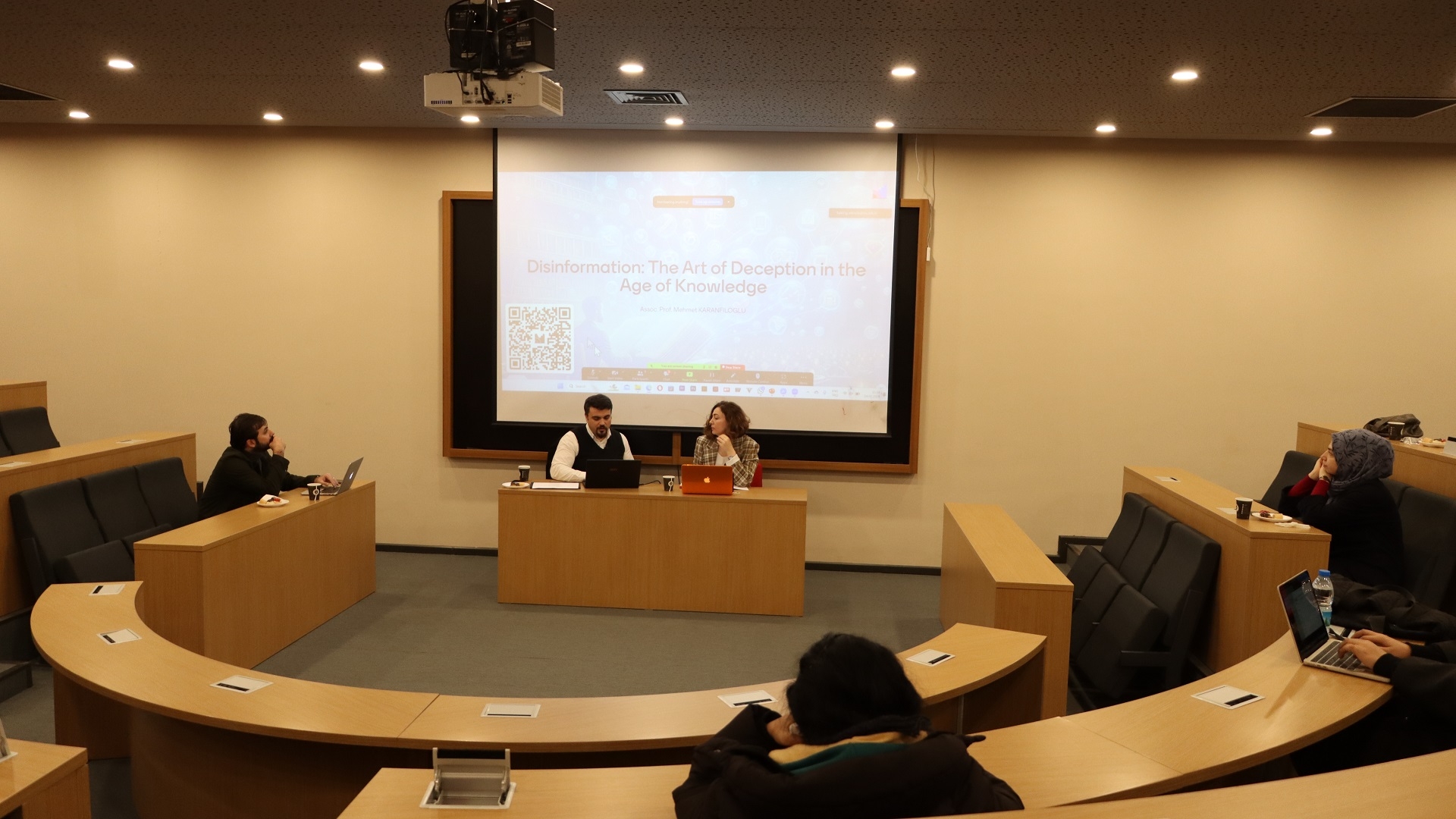


The fourth of the Wednesday Meetings series was held on February 14, 2024 with the participation of our academicians. This week's topic of the meetings, where the academics of our university discussed the prominent issues of today's world from an academic perspective, was "The Art of Deception in the Information Age".
In the event, where Faculty of Communication Faculty Member Assoc. Dr. Mehmet Karanfiloğlu was the speaker and Dr. Kübra Kulaklıkaya was the moderator, the usual consequences of the combination of the ever-evolving technology with the nature of human beings inclined to mislead now and in the future were discussed and analyzed from the perspective of the concept of disinformation.
In the speech, Assoc. Dr. Mehmet Karanfiloğlu mentioned the siblings of the word disinformation, which we often use in daily life and which originally means giving false information in a deliberate way, in the form of misinformation and malinformation, and stated that misinformation given without a bad intention is called misinformation, while conveying correct information with a bad intention is called malinformation.
Assoc. Dr. Karanfiloğlu explained the seven different types of information disorder that we frequently encounter in the media. He talked about the content known as parody/satire, which criticizes or mocks real events and people with humorous language. These accounts, which are presented as if they are real news but are actually intended to be funny or critical, can be misleading. In imposter content, accounts that impersonate or disguise someone else's identity stand out. Misleading content refers to information that misleads the reader. Fabricated content refers to information that is completely untrue and invented; manipulation refers to content that is created by combining real images in a misleading way; decontextualization refers to information that presents an event or situation in the wrong context; and false connection refers to situations that present a topic or content in a false context. Being aware of this diversity is an important step in protecting against deceptive information.
Proving the creepy power of the ever-developing artificial intelligence by making the participants listen to the song "Firuze" sung by Zeki Müren by artificial intelligence, Assoc. Karanfiloğlu drew attention to how the song, which was not actually sung by Müren, was programmed in a way that those who do not know it cannot distinguish it by using the artist's voice.
Assoc. Dr. Karanfiloğlu emphasized the importance of raising awareness about deception attempts, which are becoming more and more skillful in the information age. He stated that deception attempts have become more cunning and artful over time, making it difficult to distinguish the truth. He stated that information disorders that can harm societies politically, economically and socially can be prevented through individual awareness. He explained that media and digital literacy have a key role in distinguishing and verifying misleading information and that it is possible to protect against misleading information by developing these skills. She explained to the participants that verifying the truth can be difficult, but the importance of verifying every piece of information before sharing it and the importance of media and digital literacy.